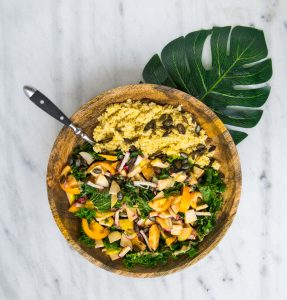Veganism – need to know more?

The amount of people choosing to be vegan has noticeably increased in recent years. Vegan diets can certainly be healthy and aside from the important environmental and ethical reasons for becoming a vegan, good vegan diets can lower the risk of cardiovascular disease and certain cancers. There are some important things that you need to know if you are a vegan though, to make sure that you are hitting the healthy mark with your vitamin and nutrient intake. Firstly, being vegan doesn’t suit everyone (we are all so SO different!), and not taking care of vital needs for the body could potentially lead to health issues in the future. If you are concerned you should seek professional guidance and get a personal plan.
It makes sense that the nutrients found in animal products are most at risk of being low. These include calcium, vitamin D, vitamin B12, zinc and n-3 fatty acids. Aside from B12 deficiency being of concern for vegans, low bone mineral density due to a short fall in calcium intake is something to be conscious of. Bone health depends on more than just protein and calcium. Research shows that bone health is also influenced by vitamin D, vitamin K, potassium and magnesium. A high intake of fruits and vegetables for vegans should mean that vitamin K, potassium and magnesium are not a problem, so it’s the calcium and vitamin D (often from dairy sources) that requires special attention. We get most of our vitamin D from the sun and it also occurs naturally in fatty fish, dairy and eggs. Vegans need to get their source from sun exposure, vitamin D fortified foods or supplements. Even non-vegans may be recommended to take a supplement in the autumn and winter months so this is a consideration for all.
Vegans and vegetarians can run the risk of B12 deficiency as it is naturally present in animal products. Again, there are foods that are fortified with B12 so if you are a vegan look out for these. Low B12 affects homocysteine which is found to be raised in vegans over time, which can be a risk factor for cardiovascular health. If you are concerned about this and have been a vegan / vegetarian for a long time, it is best to consult a professional. I personally advocate getting nutrients from a healthy balanced diet and real food. However, in some cases a B12 and/or vitamin D supplement may be necessary if you are a vegan.
Being vegan for whatever reason is a personal choice but should not be done lightly. Aside from the aforementioned potential nutrient short falls, good sources of essential protein are also needed for a healthy vegan diet. There are also other nutrient considerations but these may vary depending upon the individual. Consideration for a potential increase in processed foods should also be highlighted. As more and more ‘healthy’ vegan products find their way onto the supermarket shelves, you may find that vegan packet foods do not always equal healthy.
I offer a Plant Based Package for those of you who might need help navigating this lifestyle. Read here for details or get in touch.
Amy Young